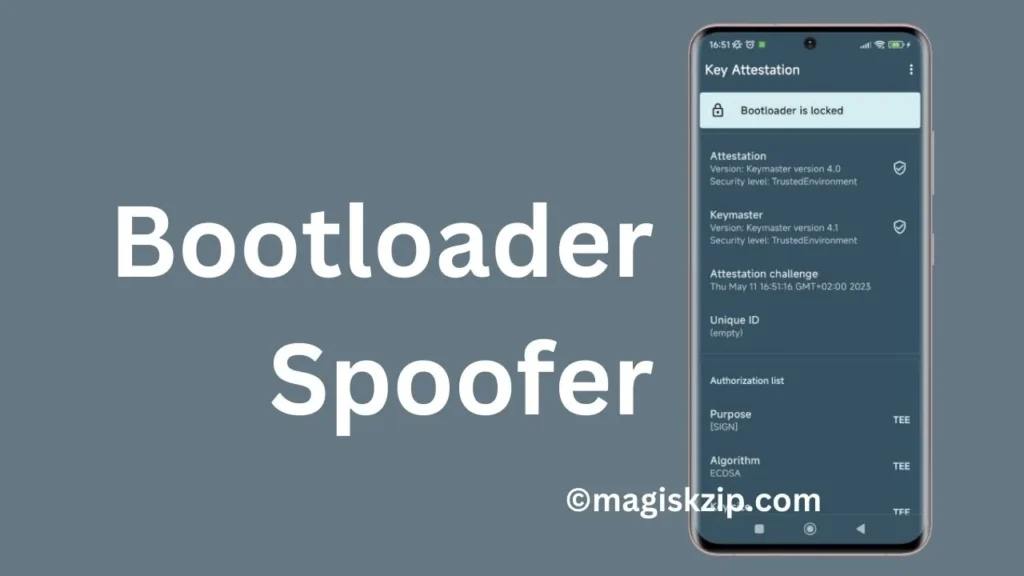Many apps detect if your bootloader is unlocked, which can lead to restricted access or security warnings. Bootloader Spoofer is an APK designed to modify certificate extensions, helping you bypass hardware integrity local attestations. This tool is useful for specific apps that check for an unlocked bootloader, ensuring better compatibility and privacy.
In this guide, we’ll cover everything you need to know about Bootloader Spoofer, including its features, requirements, download and installation steps, FAQs, and more.

Table of Contents
Features of Bootloader Spoofer
Here’s why Bootloader Spoofer is an essential tool:
- Bypasses Bootloader Detection – Avoid restrictions caused by apps detecting an unlocked bootloader.
- Modifies Certificate Extensions – Helps fool local attestations for better compatibility.
- Ensures Device Privacy – Reduces fingerprinting by apps looking for root or bootloader status.
- Works on Select Apps – Designed for apps that check bootloader status, not Google or system framework.
- Lightweight & Easy to Use – Minimal impact on system performance.
Requirements
To use Bootloader Spoofer, ensure your device meets the following conditions:
- An Android device with an unlocked bootloader.
- Root access for modifying system behavior.
- LSPosed or Xposed Framework installed.
Download Bootloader Spoofer
You can download Bootloader Spoofer from the official source below:
Installation Guide
Follow these steps to install Bootloader Spoofer:
- Install Xposed/LSPosed Framework – Ensure you have a supported framework installed.
- Download the Bootloader Spoofer APK – Use the link above to get the latest version.
- Install the APK – Open the downloaded file and install it.
- Activate the Module – Enable Bootloader Spoofer in your LSPosed/Xposed Manager.
- Reboot Your Device – Restart your phone for changes to take effect.
- Select the Apps to Spoof – Choose only apps that check bootloader status, avoiding Google apps or system framework.
Check this also: Download HideMyApplist
FAQs
Yes, it is safe if used correctly and only for apps that check bootloader status.
Most Android devices with an unlocked bootloader can use it, but compatibility may vary.
Yes, if you modify Google apps or system framework, you might fail Play Integrity checks.
No, if an app sends the certificate to a secure server for verification, Bootloader Spoofer won’t work.
Conclusion
Bootloader Spoofer is a handy tool for bypassing bootloader detection and improving device compatibility for select apps. By modifying certificate extensions, it helps maintain better privacy and functionality. However, use it wisely and avoid modifying Google apps or system framework to prevent Play Integrity issues.
If you found this guide helpful, leave a comment below and share your experience.
